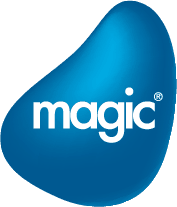There aren’t enough Windows 8 applications available today, but app tool developers are working to fill the void and meet a rising enterprise demand.
There will be 100,000 apps in the Windows Store by the end of this month, noted Microsoft CEO Steve Ballmer during the Build Developer Conference this week, where Microsoft launched a Windows 8.1 preview. By comparison, Apple Inc.’s App Store, which opened in July 2008, now has more than 850,000 apps.
Availability of Windows 8 applications will be imperative for the new operating system to succeed in the enterprise. Developers said enterprise customers have begun to take an interest in Windows 8, even if they are not ready to deploy the new operating system yet. With that comes the demand for Windows 8 enterprise apps, which has sparked development.
“We see app projects kicking off today,” said Nat Friedman, CEO and co-founder of Xamarin Inc., tools provider for cross-platform mobile app development based in Cambridge, Mass. “[The C# developer community is] engaged and [is] building the Windows apps.”
Xamarin released this week an online service that scans existing .NET libraries and determines how much code can be used for mobile apps. The service will provide developers a view into how much work will be required to migrate an app’s code to create full native Windows store, Windows Phone, iOS, Android and Mac applications.
“Apps have to be cross-platform,” Friedman said. “You’re not building single platform apps anymore. A Windows 8 app looks different from an iOS and Android app.”
Dove Tree Canyon Software Inc., a developer based in San Diego, Calif., writes software that controls mechanical equipment in the materials handling industry. It uses Magic Software’s Magic xpa Application Platform. The product is a cross-platform server environment designed to help developers create enterprise apps that support a variety of mobile platforms, including Windows desktops, Windows clients, iOS, Android and Blackberry.
In August, Magic will release an offline feature that is particularly important in industries where wireless access may be spotty and require more end-user work.
Dove Tree’s President Bill Woo was excited for the new offline capabilities that will be coming in the Magic xpa Application Platform. The offline capability will enable Dove Tree’s customers to use an application, continue to use the app even if they lose the Wi-Fi connection, and then sync to the backend when they become connected. In addition, it could even help save on mobile device battery life since the unit may not always be connected to the wireless.
Dove Tree found another benefit to using Magic’s development tool: “We do not need to worry about the Microsoft operating system and all the changes,” Woo said. “The Magic development system takes care of all the operating system changes.”
Some other Windows 8 app development tools include Kony Solutions Inc.’s KonyOne Platform, Telerik Inc.’s DevCraft tools and Microsoft’s own Visual Studio 2013.
Click for the online version
